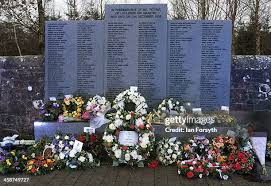
Introduction
The Lockerbie bombing, which occurred on December 21, 1988, remains one of the most tragic events in aviation history. The implications of this disaster extend far beyond the immediate loss of 270 lives, marking a significant turning point in the international fight against terrorism. As we approach the 35th anniversary of this devastating act, it is essential to reflect on its impact, both at the time and in the years that have followed.
A Dark Day in History
On that fateful night, Pan Am Flight 103 was en route from London to New York City when it was destroyed by a terrorist bomb over Lockerbie, Scotland. The explosion claimed the lives of all 243 passengers and 16 crew members aboard the flight, alongside 11 residents on the ground. In the aftermath, investigations led to the identification of Libyan intelligence operative Abdelbaset al-Megrahi as the main suspect in orchestrating the bombing, which was a significant turn in international terrorism investigations.
Legal Ramifications and Political Fallout
The subsequent trial and conviction of al-Megrahi in 2001 brought a degree of closure to the victims’ families, yet it was also marred by controversy. His release in 2009 on compassionate grounds due to health issues sparked widespread outrage, particularly in the United States, where many viewed it as an affront to the memory of the victims. Moreover, the case prompted a significant reevaluation of the way international law addressed terrorism, leading to substantial changes in aviation security protocols and diplomatic relations with Libya.
Impact on Aviation and Security
The Lockerbie bombing fundamentally transformed global aviation security. In its wake, governments around the world tightened security measures at airports, including increased luggage checks and the introduction of advanced screening technology. These changes have been pivotal in shaping the current landscape of air travel, aiming to ensure the safety of passengers at all times. The incident underlined the necessity for international cooperation in combating terrorism, leading to collaborative efforts across nations.
Conclusion
As we commemorate 35 years since the Lockerbie tragedy, it is crucial to remember the lives lost and the ongoing impact on families, communities, and global aviation policies. The legacy of Lockerbie serves as a poignant reminder of the persistent threat of terrorism and the need for vigilance and international cooperation to combat such acts. As security measures continue to evolve, the lessons learnt from Lockerbie remain ever relevant in our quest for safer skies.
You may also like

Exploring East Grinstead: History and Attractions

The Cultural and Historical Significance of Poppies
